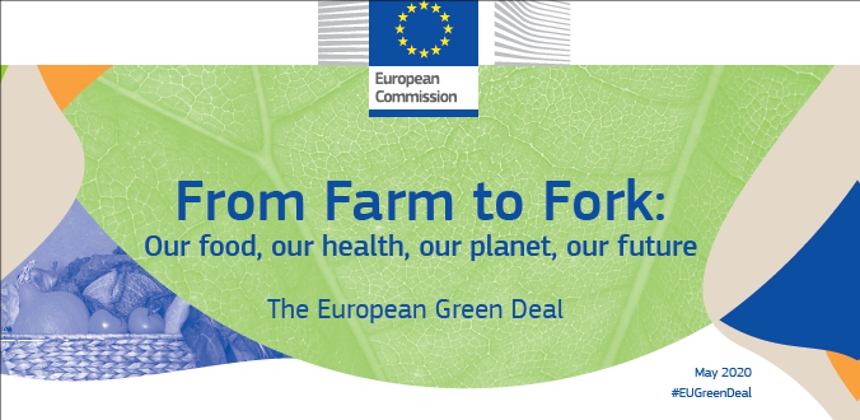EFSA scientific advice related to nutrient profiling for the development of harmonized mandatory front-of-pack nutrition labelling and the setting of nutrient profiles for restricting nutrition and health claims on foods
As part of the Farm to Fork strategy and the revision of the FIC regulation, the European Commission is planning to submit a legislative proposal on front-of-pack nutrition labelling and a proposal on the setting of nutrient profiles by the end of 2022.
Against this background, the European Commission requested EFSA a scientific opinion on the development of harmonized mandatory front-of-pack nutrition labelling and the setting of nutrient profiles for restricting nutrition and health claims on foods.
EFSA opinion
EFSA has been requested to provide scientific advice on the following:
- Nutrients of public health importance for the European population, including non-nutrient components of food (e.g. energy, dietary fiber);
- Food groups which have important roles in the diets of European populations and subgroups thereof;
- Choice of nutrients and other non-nutrient components of food for nutrient profiling.
Summary of the opinion:
 Dietary intakes of saturated fats, sodium and added/free sugars on one hand and dietary fibre on the other, are respectively above and below current recommendations in a majority of European populations and could be considered for inclusion in nutrient profiling models based on their public health importance for European populations.
Dietary intakes of saturated fats, sodium and added/free sugars on one hand and dietary fibre on the other, are respectively above and below current recommendations in a majority of European populations and could be considered for inclusion in nutrient profiling models based on their public health importance for European populations. Total sugars can be used as a proxy for added/free sugars in category-based nutrient profiling models because added/free sugars are the most variable fraction of total sugars between food products within a given food category. This also applies to food categories containing sugars but no added/free sugars in the unprocessed version (e.g. fruits and vegetables, milk and dairy products). Total sugars may not be equally suitable for nutrient profiling models to be applied across the board.
Total sugars can be used as a proxy for added/free sugars in category-based nutrient profiling models because added/free sugars are the most variable fraction of total sugars between food products within a given food category. This also applies to food categories containing sugars but no added/free sugars in the unprocessed version (e.g. fruits and vegetables, milk and dairy products). Total sugars may not be equally suitable for nutrient profiling models to be applied across the board. Energy could be included in nutrient profiling models because a decrease in energy intake is of public health importance for European populations owing to the high prevalence of overweight and obesity and the positive relationship between high energy dense-diets and risk of weight gain. In food group/category-based nutrient profiling models, total fat could replace energy owing to its high energy density in most food groups, while the energy density of food groups with low or no fat content (e.g. water-based non-alcoholic beverages, jams and marmalades) may be well accounted for by the inclusion of (added/free) sugars in the model.
Energy could be included in nutrient profiling models because a decrease in energy intake is of public health importance for European populations owing to the high prevalence of overweight and obesity and the positive relationship between high energy dense-diets and risk of weight gain. In food group/category-based nutrient profiling models, total fat could replace energy owing to its high energy density in most food groups, while the energy density of food groups with low or no fat content (e.g. water-based non-alcoholic beverages, jams and marmalades) may be well accounted for by the inclusion of (added/free) sugars in the model. Dietary protein is required to support tissue growth during childhood and adolescence and maintain muscle mass and function during adulthood and in old age. Average protein intakes in Europe are above the population reference intake in most population groups and countries, and no beneficial effects on muscle mass or function can be expected from increasing protein intakes further.
Dietary protein is required to support tissue growth during childhood and adolescence and maintain muscle mass and function during adulthood and in old age. Average protein intakes in Europe are above the population reference intake in most population groups and countries, and no beneficial effects on muscle mass or function can be expected from increasing protein intakes further. In addition to sodium, for which intakes are above recommendations, other vitamins and minerals of public health importance could be considered, mostly because their intakes in European populations or certain subgroups thereof are lower than recommended. These include potassium, iron, calcium, vitamin D, folate and iodine. Intakes of potassium appear to be inadequate in a majority of European adult populations, and thus could be considered for inclusion in nutrient-profiling models. For iron, calcium, vitamin D, folate and iodine, inadequate intakes are only observed in very specific subgroups of the population. Whereas dietary modifications alone may not be sufficient (or appropriate) to fulfil the nutrient requirements, some foods/food groups make important contributions to their intake (e.g. milk and dairy products for calcium; meat and meat products for iron; fortified foods such as breakfast cereals for folate). Inadequate intakes of these nutrients are usually addressed by national nutrition policies in Member States and/or individual advice.
In addition to sodium, for which intakes are above recommendations, other vitamins and minerals of public health importance could be considered, mostly because their intakes in European populations or certain subgroups thereof are lower than recommended. These include potassium, iron, calcium, vitamin D, folate and iodine. Intakes of potassium appear to be inadequate in a majority of European adult populations, and thus could be considered for inclusion in nutrient-profiling models. For iron, calcium, vitamin D, folate and iodine, inadequate intakes are only observed in very specific subgroups of the population. Whereas dietary modifications alone may not be sufficient (or appropriate) to fulfil the nutrient requirements, some foods/food groups make important contributions to their intake (e.g. milk and dairy products for calcium; meat and meat products for iron; fortified foods such as breakfast cereals for folate). Inadequate intakes of these nutrients are usually addressed by national nutrition policies in Member States and/or individual advice. Nutrients and non-nutrient components of food may be included in nutrient profiling models for reasons other than their public health importance, e.g. as a proxy for other nutrients of public health importance, or to allow for a better discrimination of foods within the same food category.
Nutrients and non-nutrient components of food may be included in nutrient profiling models for reasons other than their public health importance, e.g. as a proxy for other nutrients of public health importance, or to allow for a better discrimination of foods within the same food category.
What are the next steps from a policy point of view?
As part of the FIC revision, the European Commission, as being the risk manager, will propose the nutrient profiling model to be used for the purposes of the setting of nutrient profiles for front-of-pack labelling and for limiting nutrition and health claims on foods.
It is still unclear what it will look like: whether the FOPNL and nutrient profiling will be two separate models or whether there will be one encompassing label.
It is possible that the European Commission comes up with a front of pack nutrition labelling system and nutrient profiling that is portion size based.
Some complementary data
The complete article published in the EFSA Journal is available at:
Sources: TomatoEurope, efsa.europa.eu, efsa.onlinelibrary.wiley.com































